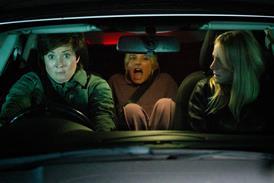Filmmakers hoping to use video-enabled DSLR cameras for professional shoots are being warned that if they do so, they may have to pay royalties for using the camera’s video codec.
All video cameras and camcorders that shoot in H.264 or MPEG2 come with a license agreement that states that owners can only use that camera to shoot video for “personal use and non-commercial” purposes.
For any other purpose, it is said, they must get a license from MPEG-LA, the firm that manages digital video standards and the patent pools related to them.
Video-enabled DSLR users hoping to shoot for professional purposes would then also have to pay royalties ‘for each copy sold’ of the relevant media.
The rule is said to apply even if the final video distributed is not encoded using the patented codec.
Eugenia Loli-Queru, in a blog piece called Why our civilization’s video art and culture is threatened by the MPEG-LA, explained:
“Apparently, MPEG-LA makes it difficult for camera manufacturers, or video editor software houses, to obtain a cheap-enough license that allows their users to use their codec any way they want. This way, MPEG-LA cashes in not only from the manufacturers and software providers, but also artists, and even viewers.”
Converting the footage to another format doesn’t solve the problem either, she says.
“The problem cannot be fixed by simply exporting your footage using OGV Theora, because by the time you decided you want to charge for your video, or upload it on a free streaming site with ads, or you used a non-licensed decoder to edit it, you’re already liable.”
H.264 and MPEG2 codecs are used by cameras made by Sony, Panasonic, Canon and others.

























No comments yet